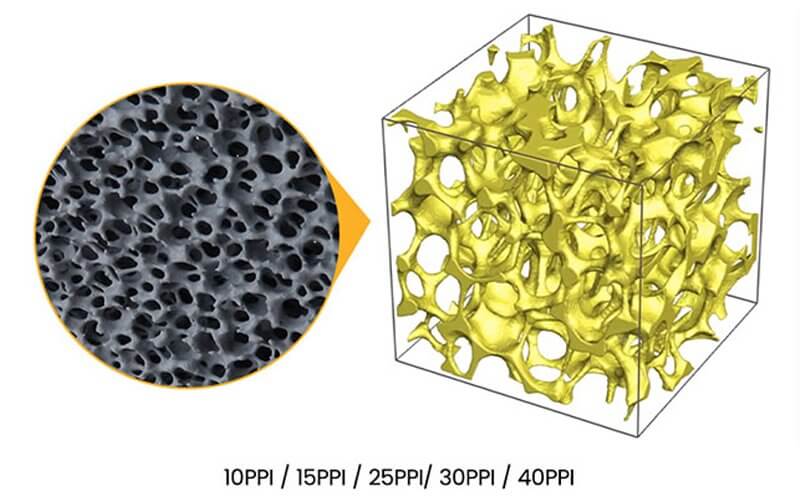Introduction:
CFF Filters (Ceramic Foam Filters), are innovative filtration devices made from ceramic materials with a unique porous structure. These filters have gained significant attention in various industries due to their exceptional performance and versatility.
Overview of CFF Filters:
CFF Filters are engineered using advanced manufacturing techniques to create a three-dimensional network of interconnected pores within a ceramic structure. This unique design allows for the efficient filtration of molten metals and liquids while maintaining high mechanical strength and thermal stability. The interconnected porosity of CFF provides a large surface area for effective filtration and enhances the removal of impurities, such as non-metallic inclusions, slag, dross, and oxides.

![]()
Application Analysis:
Foundry Industry:
One of the prominent applications of CFF Filters is in the foundry industry. Foundries often encounter challenges related to the quality and purity of castings, as the presence of impurities can lead to defects and reduced mechanical properties. CFF addresses these concerns by effectively removing impurities from molten metals during the casting process. For example, in aluminum casting, CFF helps eliminate oxides, allowing for the production of high-quality aluminum castings with improved mechanical properties.
Steel Industry:
In the steel industry, CFF plays a crucial role in the production of clean and high-quality steel. During steelmaking processes, impurities such as inclusions and slag can negatively affect the final product’s strength and integrity. CFF Filters are utilized to remove these impurities, leading to improved steel cleanliness and enhanced mechanical properties. Moreover, CFF helps to control the flow and distribution of molten steel, reducing turbulence and promoting uniform solidification.
Petrochemical Industry:
The petrochemical industry often deals with corrosive and abrasive fluids containing various contaminants. CFF Filters are employed in this industry to filter catalysts, remove impurities, and enhance the efficiency of chemical reactions. CFF effectively removes particulate matter, contaminants, and catalyst fines, thereby improving the overall product quality and reducing downtime caused by fouling and clogging.
Water Treatment:
CFF Filters find application in water treatment processes as well. With their high porosity and excellent chemical resistance, CFFs are utilized to filter and purify water by removing suspended solids, sediments, and bacteria. The three-dimensional structure of CFF allows for a higher flow rate and better retention of contaminants, leading to improved water quality in various applications such as drinking water treatment, wastewater treatment, and industrial process water filtration.
Thermal Insulation:
Beyond filtration, CFF Filters also possess exceptional thermal insulation properties. They are employed in industries requiring precise temperature control, such as aerospace and power generation. CFFs provide excellent insulation and reduce heat loss, allowing for more efficient thermal management in furnaces, kilns, and high-temperature processes.
Conclusion:
CFF Filters have emerged as a game-changing technology in various industries, offering effective filtration solutions and improved product quality. Their unique porous structure, mechanical strength, and thermal stability make them ideal for applications in foundries, steelmaking, petrochemicals, water treatment, and thermal insulation. With ongoing research and advancements, the utilization of CFF Filters is expected to expand further, driving innovation and enhancing processes across numerous sectors.

